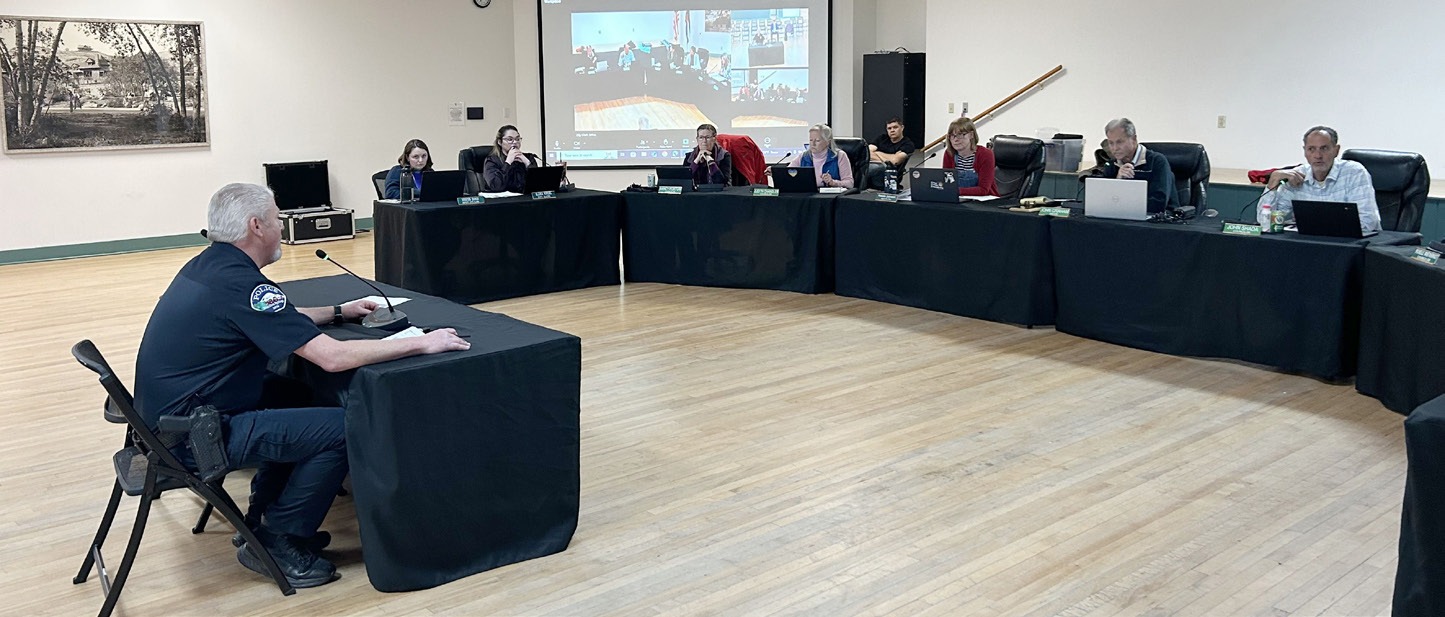Manitou Springs City Council approved six contracts with the American Institute of Architects for the Hiawatha Gardens project.
Council member Nancy Fortuin took issue with the expense.
“I’ve always thought that it was ridiculous to have two open air pavilions across the street from one another,” she said. “I don’t believe we have over a quarter of a million dollars plus whatever the actual construction costs would be for the project.”
Fortuin said there was little public discussion on the concept.

“I feel that we were cornered, really … into approving this concept, as this was our only alternative with the late reveal of the changes to Memorial Park,” she said. “We didn’t find out about the dramatic changes to Memorial Park until actually the night that we discussed it … as the changes to Memorial Park weren’t included in the original concept that the contractor presented to us.”
“We are planning to close Old Man’s Trail, and I think that we need to be looking at a broader concept for the area than just having two open air pavilions,” Fortuin said, adding that she can support other phases of the Hiawatha Gardens project because they will use Pikes Peak Rural Transportation Authority (PPRTA) dollars, which have to be used within a certain time frame.
“Quite honestly I did not read 1,600 pages of the packet this weekend, so I may have misunderstood some things – but I don’t think that this is an appropriate use of dollars and I don’t concur with the concept,” she said.
Mayor John Graham attempted to address Fortuin’s concerns. “My understanding is, with the vehicular bridge and closing Old Man’s Trail, those are just really … preliminary conceptual plans, sort of the what-ifs, if we were to actually do that … I was a little put off by that initially, but I think that’s a minor point considering all that’s to be done here.”
Ultimately, Fortuin opposed the expense. “It’s $250,000 for something that I don’t think is appropriate,” she said. “That’s only the design and the architect cost. That’s not even the construction costs.”
Fortuin was the sole dissenting vote.
Proposed Metro route change, free fare
Manitou Springs City Council heard a presentation from Jacob Matsen, transit planning and operations supervisor for Mountain Metro, regarding proposed route changes. The Mobility and Parking Board (MAPS) voted unanimously on April 23 to support free fare for Route 3, which provides public transit between the Downtown Terminal and Old Man’s Trail. It will cost Manitou Springs $52,222 and Colorado Springs $148,354, per the cost share agreement. MAPS also supported Route 33 going to the Dillon Mobility Hub starting in the fall.
City Council will hear a second presentation during next week’s work session, and vote on proposed changes during the May 20 regular meeting.
Speed limit reduction ordinance passes first reading
Manitou Springs City Council approved the first reading of an ordinance to reduce the default speed limit within Manitou Springs to 20 mph. The initiative aims to enhance pedestrian and cyclist safety, improve community livability, and align with broader traffic safety goals. The City of Manitou Springs staff proposed the adoption of a 20 mph speed limit for local residential streets, similar to the policy recently implemented in Denver. According to the memorandum for the ordinance, studies have shown that lower speed limits reduce the frequency and severity of traffic incidents, particularly in areas with pedestrian activity, narrow streets, and limited visibility, all of which are common in Manitou Springs. The second reading will take place during the May 20 regular meeting.
I don’t think that this is an appropriate use of dollars and I don’t concur with the concept. Nancy Fortuin
Election transparency, clarity ordinance passes first reading
Council also approved the first reading of an ordinance regarding elections. The goal of the ordinance is to ensure transparency and administrative clarity in future elections. Currently, the City Code does not contain a dedicated chapter outlining procedures for elections. While the Charter provides some general governance, the absence of such a chapter creates ambiguity and potential inconsistency in how elections are conducted. This ordinance seeks to address this gap by establishing clear procedures. Specifically, the ordinance outlines the conduct of elections, write-in vote regulations, procedures for canceling uncontested elections, and fair campaign practices, including reporting requirements for contributions and expenditures.

